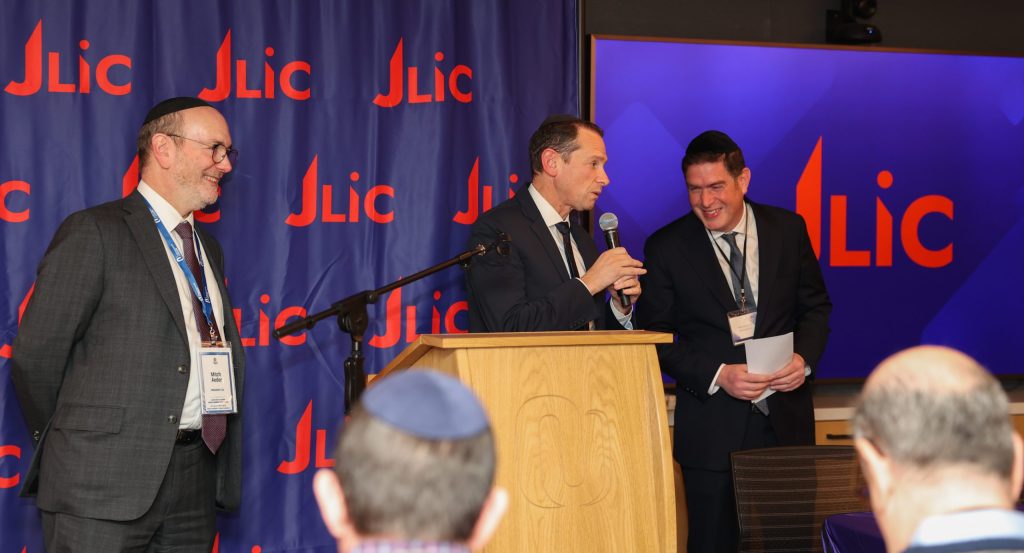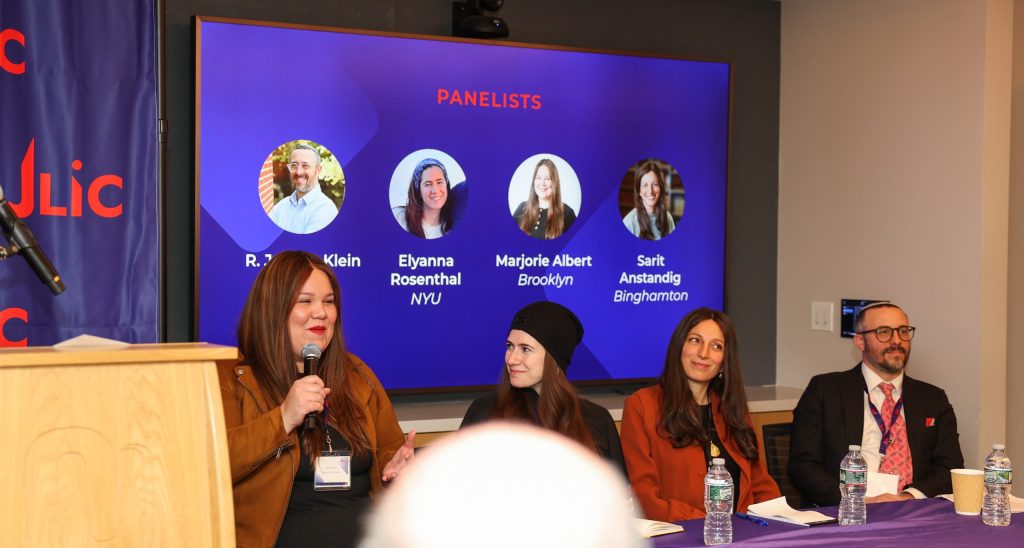Over 30 Jewish high schools from across the US sent their college guidance counselors to the OU offices in lower Manhattan on November 19. Independent educational consultants came too. For many of them, it was their first JLIC event, and they walked away with a completely different understanding of what JLIC actually does on college campuses.
OU President Mitch Aeder and Executive Vice President Dr. Josh Joseph opened the conference. Their presence set the tone right away: this wasn’t just a JLIC initiative. The OU as a whole is deeply invested in helping Jewish students through the high school to college transition, and JLIC coordinates across multiple OU departments to make that support happen.

Elie Weissman, Associate Director of North American Campuses, gave everyone an overview of JLIC’s North American footprint and explained the rabbinic couple model. But what really resonated came next, when four JLIC campus directors talked about what they see on the ground.
Joshua Klein from Penn, Elyanna Rosenthal from NYU, Marjorie Albert from Brooklyn College, and Sarit Anstandig from Binghamton shared real stories about helping students navigate campus life while staying connected to their Jewish identities. For students living on their own for the first time, JLIC becomes a place to build community and develop leadership skills they’ll use for years to come.

The morning session on JLIC summer and volunteer programs took an unexpected turn. Far more questions came in than anyone anticipated. It became clear there’s significant interest in reaching students who aren’t doing gap years but still want meaningful Israel experiences. The counselors saw an opportunity they hadn’t considered before.
After lunch, Gracie Newmark, Director of Yavneh, walked everyone through Yavneh. The program has student leaders on 100 campuses, and it’s completely student-driven. Students run the programming themselves. What makes it powerful is how it extends JLIC’s reach to Orthodox students at schools where there’s no rabbinic couple on campus. Counselors learned about the different Yavneh fellowships and received contact information so they could connect prospective students directly with current Fellows at specific schools.
Matthew Abramowitz from the OU’s Antisemitism Task Force addressed what students face on campus today. He shared practical resources for counselors who need to help students navigate difficult situations. That conversation led naturally into an overview of LIAT, the OU’s advocacy program where students meet members of Congress, White House officials, and judiciary leaders while learning to advocate for issues important to Jews and Israel.
Jon Shulman, Director of JLIC Israel, presented on lone soldier and Bnot Sherut programs, explaining how those post-high school paths can work alongside the traditional college route. The afternoon concluded with a look at JLIC’s Israel campus network, including a virtual connection to representatives overseas. Counselors learned about the differences between US and Israel admissions processes, what college-in-Israel actually looks like, and how students build Jewish networks that last well beyond graduation.

Attendees left with resource packets and new professional connections. The feedback came quickly. “Thank you so much for hosting this informative day and for doing such incredible work,” one counselor wrote. Another shared, “It was very informative and helpful as we continue to guide our students.” Even those who had to cancel reached out afterward asking for all the materials.
Schools ranged from large Modern Orthodox institutions to smaller community day schools. The independent consultants gained insights they could take directly to families navigating these decisions on their own.
“High school guidance counselors are critical partners in helping day school students navigate their Jewish journey, and we brought everyone together because we wanted to strengthen those relationships,” said Rabbi Josh Ross, Executive Director of JLIC. “Many of the advisors in the room didn’t realize the full array of programs JLIC offers, from summer experiences to advocacy training to support for students considering service in Israel. We hope this day gave them a clearer picture of how we can work together to support students through one of the most formative transitions of their lives. When counselors understand what JLIC does on campus, they can better guide families making these important decisions.”
The conference achieved exactly what it set out to do. It showed counselors that JLIC isn’t just a campus rabbi. When they refer a student to JLIC, they’re opening doors to summer programs, advocacy training, Israel connections, leadership development through Yavneh, and a network of resources designed to help students thrive Jewishly throughout college and beyond. That’s what the OU departments working together can deliver, and now the counselors know it.
Reach out to any of our Directors to learn more about JLIC and to support our programming.
New Resource: Get Your Free JLIC College Guide